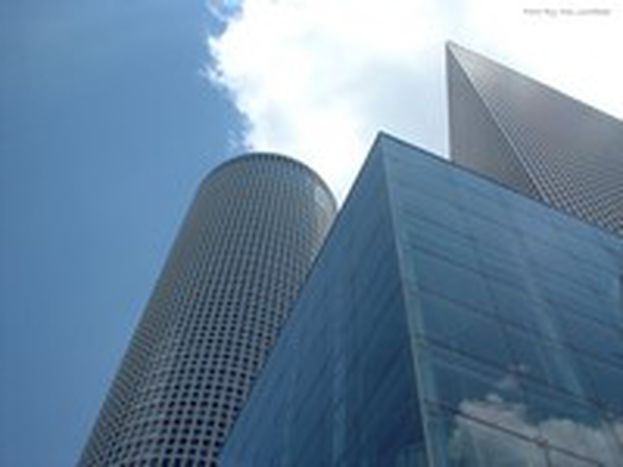
The generation of hope in Israel
Published on
Translation by:
 luke kroll
luke kroll
Today, Israel has a new generation of young people, who are well educated, excited and keen to start a new chapter and change the face of a country rooted in the past.
Israel is rooted in a rich and painful history: it is the Promised Land, the self-created state, the home of the victims of the Holocaust (as its leaders take pains to remind the world on a daily basis). Yet it is much more than some 6 million inhabitants weighed down by memory. Its young people (42% of the population) want to transform Israel by combining the traditions of the country with much needed changes.
Hunger for change
Yaakov, 23, a taxi driver and law student at Tel Aviv University, is one of these young people. Born to a Yemeni mother and Russian father, he says that he is agnostic, although of Jewish culture, and shakes his head when asked about his country’s traditionalism. “This is not the case with young people; it’s the ultra-Orthodox, just as it is with everything, and the children of the settlers, who will never break the Sabbath (the Jewish holiday). But the others…”
“…Well, they have fun until the early hours of the morning. They go to exhibitions, go on dates and study a lot,” he explains, laughing. He practices what he preaches: he hugs his girlfriend Sheera as he drinks a pint of Guinness in Molly Bloom’s, one of the best-known Irish pubs in the Israeli capital. Around him, sit dozens of young people who could come from Paris, Madrid or Poland. The avant-garde is leading a cultural revival in which young people are the main players. This ranges from the Kibbutz Contemporary Dance Company, to drummers such as Mayumana, musicians Noa, Gil Dor or David Broza, and the latest find, the Tel-Aviv Trio, an innovative classical band.
Political disappointment
Nevertheless, although the country’s youth is developing fast on a cultural and entertainment level, it comes at a cost of growing disenchantment with the thorny question of politics. 67% of people aged less than 30 “are not interested” in politics, according to a recent survey by Haaretz, the leading Israeli newspaper. The survey suggests that in the elections to be held on the 28th, ¾ of the 46% of abstentions will be young people. The majority will follow the national trend and vote for Kadima, Sharon’s party, or Peretz’s Labour party.
“The parties only offer arguments and squabbles, they don’t solve anything, like the problem of job insecurity,” complains Ira, Yaakov’s friend, who has joined the conversation. The statistics prove him right: youth unemployment is hovering around 18%, workers are suffering because of job insecurity and there is only one way to find some extra cash to study, the way in which the country supports itself: security. Of those university students who work, 74% are employed as security guards, since in Israel, anyone going into a bar or shopping centre has to go through the metal detector. It is the paranoia of fear.
Aware and committed
Along with distance from politics, there is another odd phenomenon: the growing interest in NGO-led peace activities. Associations such as Peace Now, key to the creation of the Geneva Accord and organiser of the biggest demonstrations in favour of a Palestinian state that Israel has ever seen, arose out of the concerns of university students in Haifa, Jerusalem and Tel Aviv, as well as from the reaction to the death of Yitzhak Rabin at the hands of a Jewish extremist. On Tel Aviv’s Nordau Avenue, Matan, a volunteer Red Cross worker, tries to explain the growing desire for consensus: “young people have grown up in a developing nation, when their parents and grandparents were struggling to lift the country. It has hurt us to see our neighbour, Palestine, who sometimes attacks us, as someone with rights who deserves their land. We have ours and that is enough for us. Now is the time to encourage dialogue,” he says. At 27 years old, he has already been called upon four times to collect the remains of his compatriots, blown to pieces by bombs.
A heart for everything
Just as quickly as he had become serious, he suggests having a kebab from one of the stalls that dot the Israeli streets to lighten the atmosphere. On the way, speaking more casually, he starts to stop at every shop window. “I spent seven months in London and when I come here and see the tacky way many women dress, it makes me ill,” he says, looking at a green bridal dress, covered with jewels. This brings up one of the main contradictions of the new Israelis: they are increasingly open, more and more progressive, but are getting married in greater numbers. The institution of the family remains as strong as ever. “Our heart has space for everything, to be modern and traditional, to believe in God and the god of surfing to whom we pay homage in Netanya, to play folk or rock music. We are like Israel, a great mixture that the world will learn to like.”
Translated from La generación de la esperanza en Israel


